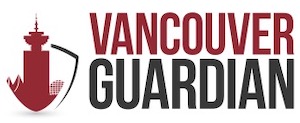In 2023, casino gaming has become a crucial asset for British Columbia. The province’s gaming industry generates a sizable portion of revenue – last year, the gambling industry in BC made around $1.6 billion, which places it second only to taxes in terms of productivity. While the province may be leading the way in providing access to some of the best online casinos and land-based gaming venues in the country, BC has also implemented its self-exclusion system to help keep gamblers safe and healthy.

The BCLC Game Break program aims to help volunteer gamers reduce or restrict their access to online casinos and physical gaming rooms. Let’s examine Game Break in more detail, including its key features and how efficient it has been in the promotion of responsible gambling in the province so far:
What is the BCLC Game Break Program?
The much-discussed Game Break program is a self-exclusion initiative designed by the British Columbia Lottery Corporation (BCLC). The BCLC is a Crown Corporation responsible for overseeing and managing commercial gaming in Vancouver and the province of British Columbia. Like many other self-exclusion systems developed in a variety of jurisdictions with the assistance of AI, the Game Break program aims to assist players in limiting, cutting down, or ‘taking a break’ from gambling. Whether they’re thinking of taking a break from casual gaming to save money or they’re in the process of addressing potentially serious problematic gambling behaviors, any gamer can make use of the Game Break program. There are several reasons that the Game Break program can help players exclude or even remove themselves from the action in the province. They can limit access to different gambling-related activities temporarily, or maybe on a long-term basis. The limited period can be from 6 months to 3 years, depending on the player’s choice. At present, the Game Break program covers activities that could be related to either online casino gambling or gambling at land-based casinos. It also covers physical gaming venues such as bingo halls. While the Game Break program is fairly comprehensive in its scope for both online and physical operators, it’s worth noting here that some sports betting platforms and racetracks do not currently fall under the GB umbrella. The team works by sharing photos and details of excluded players (or ‘enrollees’) with gambling operators in the state and ensuring that they cannot benefit from entry to jackpots.
The Importance of Player Health & Responsible Gambling in BC
Like any other jurisdiction where gaming regulations are in place, operators based in Vancouver and BC have a legal obligation to ensure that the ethos and implementation of responsible gambling practices are upheld. Any reputable gaming operator should always look after their players and ensure they’re safe, playing within their means, and, most importantly, having fun! While the fundamentals of responsible gambling remain the same worldwide, the BCLC is fairly unique in that it has placed much emphasis on promoting good player health. Previously, it has even implied that the BC province is striving to develop some of the healthiest, happiest players in the world with its Player Health Ambition. Given that there is now such a diverse array of widely available gaming options for BC residents and a recent proliferation of BC online casinos, it seems only natural that regulators take further steps towards keeping casino gamers safe and healthy.
Gaming Venues to Scan Customers’ ID at Point of Entry
While self-exclusion systems and the prevention of problematic gambling are certainly nothing new to BC and the world of online casinos, recent changes have come into force to improve efficacy in the province. As outlined by Marie-Noelle Savoie, (who serves as chief compliance officer over at the BCLC), the most notable of these proactive measures has been the introduction of ID scanning. Whereas banned or excluded gamblers were previously identified using license plate recognition and visual identification via cameras and physical spotters on casino floors, Game Break aims to stop them at the door. Customers’ IDs will now be checked and scanned at entry. This will then be cross-referenced with the Game Break database to ensure that any players currently on a break will be denied entry. In theory, this means it will now be more difficult for self-excluded gamblers to enter land-based gambling premises, let alone make it to the casino floor to place a cash wager. Any and all IDs should be checked at the door, according to the now-revised Game Break program. Essentially, this means that you’ll be required to present your ID upon entering a casino, gaming venue, or bingo hall in person, regardless of whether you’re planning to place real money wagers, play free games, or visit with your friends. Although this seems like a hassle for casual gamers and non-playing casino visitors, it should notably impact the efficacy of self-exclusions in the Canadian province.
So How Effective Has the Game Break Program Been So Far
While casinos and gaming venues are by no means the only thing that continually attract visitors to the province, there’s no denying that they do contribute massively. With such a thriving, active, and plentiful base of users, one could be forgiven for thinking that measures like the Game Break program could fall short. With any self-exclusion program, gamers always require a degree of willingness and cooperation, which can lead to a lack of penetration at ground level. However, the new and improved BCLC Game Break initiative has primarily been successful thus far, at least amongst those who have opted in. At present, there are approximately 14,000 players making use of the Game Break program, which accounts for around 3% of the population in the province. While the initiative has attracted many gamers of every persuasion, it’s also effectively limited their play. There were more than 4000 breaches recorded in 2022, which seems to indicate that the Game Break program is working as it should.
Stay Safe and Healthy with the BCLC Game Break
It’s hard to tell how effective the program’s latest version will be in the long term, especially given the rapid rate at which the tech progresses. However, thus far, the BCLC Game Break measure has demonstrated overall success. This is mainly due to its sizeable user base and corresponding breach identification rate. Game Break could be a great example of the kind of forward-thinking, tech-reliant self-exclusion programs we’re seeing more of as AI technology progresses. It’s key to remember that gambling or gaming should be enjoyed and treated as a source of entertainment rather than financial gain. If you’re having trouble sticking to a budget, playing within your means, or controlling your gaming overall, don’t hesitate to take some time!
